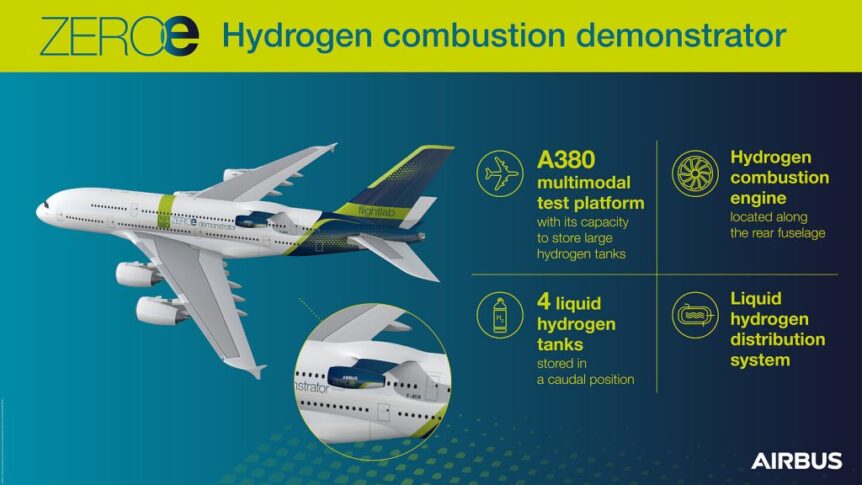Airbus and engine maker CFM International have signed a partnership agreement on a hydrogen demonstration program that could see commercial flights by 2035. CFM is a 50/50 joint company between GE and Safran Aircraft Engines. The team announced its intentions in an hour-long introduction on February 22, with members from the companies explaining the goals of the project. A view of what they intend to do with Airbus 380 serial number one gives a view inside the cavernous craft. As pointed out in a Green Car Congress article, the main objective is to develop and flight test a direct combustion engine fueled by liquid hydrogen. The Biggest Test Bed ZeroAvia seeks to get a 20-passenger liner in flight by 2024 and scale up to a 200-seat craft with 3,000 mile range by 2035. Jeff Engler’s Wright Electric is working on a BAe 146 with short-range aspirations for its 100-passenger, hydrogen fuel cell or aluminum cell-powered airplane by 2026. (We will …
Quiet May Be the New Black
Noisy airplanes are the bane of modern living. (Well, that and the myriad other intrusive sounds with which we are surrounded.) People can create and easily get signatures on petitions to close 70-year-old airports surrounded by 20-year-old housing developments, so General Aviation’s survival will at least partly depend on hushing our aircraft. We’ve been privileged to see and hear the passage of e-Genius, Pipistrel’s G4, and Chip Yates’ Long-EAS with a Craig Catto propeller, which emitted a barely discernible howl when it pushed the airplane at full power to a new time-to-climb Guinness record at the California State Airshow in early October 2013, reaching 500 meters (1,640 feet) in one minute, four seconds. This quest for quiet presses on the big airplane producers, too, anxious to be good neighbors and give passengers a less raucous flight. One engine make, Snecma, has been working on the problem since before 2009, when this report appeared in the blog Envirofuel. “Volvo Aero will …

